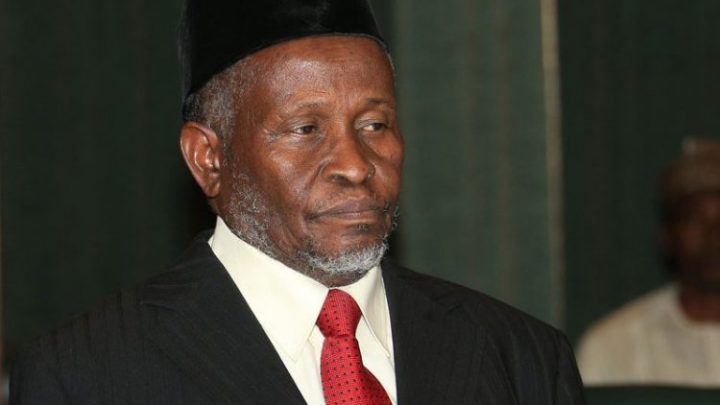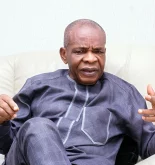The Nigerian Senate, Tuesday, vowed to investigate corruption and impunity allegations against the country’s immediate past Chief Justice, Justice Mohammed Tanko, even after he retires.
The upper legislative chamber took a tough stance in response to a motion by Michael Opeyemi Bamidele, Chairman of the Senate Committee on Judiciary, Human Rights, and Legal Matters.
Not only was Justice Tanko’s emergence and his administration of the nation’s judiciary mired in controversy but also his sudden retirement and on a Sunday.
Nigeria’s President Muhammmadu Buhari had on July 24, 2019, sworn in Justice Mohammad as Chief Justice of Nigeria.
Mohammed, who was Nigeria’s 18th CJN, became the acting CJN when the former CJN Walter Onnoghen was suspended on the grounds of false assets declaration.
On 11 July 2019, he was nominated as CJN by the president barely 24 hours after the National Judicial Council recommended him.
Mohammed began his career in 1982, after he was called to the bar in 1981, the same year he graduated from the Nigerian Law School.
But in a leaked memo last week, 14 Supreme Court Justices made scathing allegations against him including siphoning funds for judges’ welfare and court maintenance.
The Senate, which is also accused by Nigerians of being corrupt, has opted to rely on its Orders 41 and 51, to investigate the corruption allegations against the former CJN.
The upper legislative chamber took a tough stance in response to a motion by Bamidele, Chairman of the Senate Committee on Judiciary, Human Rights, and Legal Matters.
Bamidele had noted that the Senate was already in the process of investigating allegations of corruption against Justice Mohammed when he resigned, citing health reasons.
In his contribution, Deputy President of the Senate, Ovie Omo-Agege, lamented the poor working conditions of judges in Nigeria.
He also noted that the judiciary is frequently treated poorly and unfairly in comparison to the executive and the legislative arms.
Omo-Agege, therefore, urged his colleagues to support the motion to sanitise the judiciary arm of the government.
In a voice vote, the Senate approved the motion and authorised its Judiciary Committee to continue the investigation and “find a lasting solution to the matter.”
It, however, urged the panel to collaborate with relevant stakeholders, particularly those from the three branches of government, to address the justices’ concerns.
It is difficult to see how the Senate will investigate Justice Mohammed, who many of them openly wished a blissful retirement and thanked profusely for his years of meritorious service to his fatherland.
Nigerians are watching.




